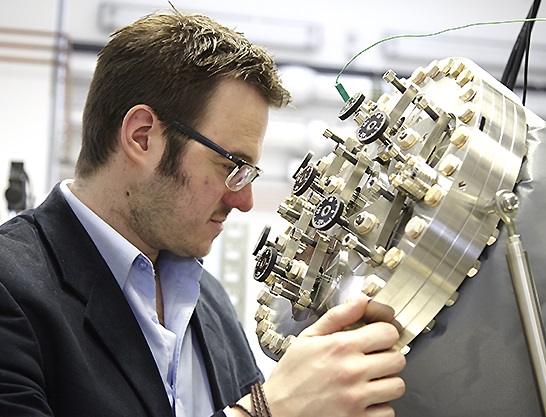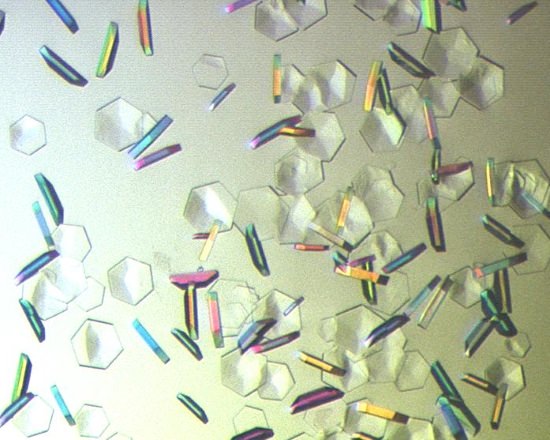| Subject Group |
Subject Area |
| Computer Science |
Systems, including networking
Artificial intelligence
Machine learning
Vision
Databases
Programming languages and verification
Numerical computing
Human-computer interaction
New computational paradigms (quantum, biological)
Security and privacy
|
| Pure and Applied Mathematics |
Mechanics (Theoretical and Applied)
Applied Mathematics and Theoretical Physics
Pure Mathematics
Statistics and Operational Research
|
Astronomy and Physics
Theoretical Physics
Applied Physics |
Astronomy
Astrophysics
Biophysics
Computational Physics
Condensed Matter (incl. soft matter, liquids and nano-materials)
Cosmic Radiation
Cosmology
Crystallography
Elementary Particle Physics
Gravitation
Interstellar Medium
Lasers and Optoelectronics
Low Temperature Physics
Magnetism
Mathematical and Theoretical Physics
Mathematical Astronomy
Mathematical Astrophysics
Mathematical Cosmology
Mathematical Gravitation
Nuclear Atomic and Molecular Physics
Planetary Science
Plasma Physics
Quantum Theory&
Semi-conductors
Solar Physics
Statistical
Physics (Applied)
Physics (Experimental) |
Chemistry
Applied Chemistry
Theoretical Chemistry
|
Chemistry, general
Chemistry, organic
Chemistry, inorganic
Chemistry, physical
Chemistry, applied
Chemistry, theoretical
Chemistry, biological
Chemistry, materials |
Engineering
Technology
Instrumentation
Material Science
Experimental Fluid Dynamics
|
General Engineering
Civil Engineering
Structural Engineering
Environmental Engineering
Mechanical Engineering
Chemical Engineering
Aeronautical Engineering
Electrical Engineering
Electronics
Opto-electronics (incl. lasers, optical microscopy, optical imaging, fibre optic components and optical computing devices)
Semi-conductors
Space Technology
Communications (incl. information theory)
Computer engineering (incl. software)
Control (incl. robotics)
Medical
Nuclear Technology
Fluid Dynamics
Materials Science (incl. materials engineering)
Instrumentation
Electric Power
|
Earth Sciences
Environmental Physical Sciences
|
Archaeology
Mineralogy
Physical Geography
Atmospheric Physics and Meteorology
Atmospheric Chemistry
Climate Science
Hydrology
Physical Oceanography
Chemical Oceanography
Limnology
Geology
Geodesy
Geochemistry
Geophysics
Seismology
|
Biochemistry
Structural Biology
Molecular Cell Biology
|
Biochemistry and Molecular Biology
Biophysics and Structural Biology
Molecular Immunology
Molecular Microbiology
Cell Biology (incl. molecular cell biology) |
Developmental Biology
Genetics (excl. population genetics)
Immunology
Microbiology (excl. medical microbiology)
|
Developmental Biology
General Microbiology (incl. bacteriology and virology)
Cellular and Humoral Immunology
Cellular Pathology
Genetics (excl. population genetics)
Cytogenetics
Immunology
Epidemiology (non-clinical) |
Anatomy
Physiology
Neurosciences
|
Animal and Human Physiology, and Anatomy
Physiology and Medicine (non-clinical)
Pharmacology (non-clinical)
Physiology (non-clinical, incl. biophysics of cells)
Endocrinology and Reproduction (non-clinical)
Experimental Psychology
Behavioral Neuroscience
Development and Control of Behaviour
Cellular Neuroscience |
Organismal Biology
Evolutionary and Ecological Science (incl. soils and agriculture)
|
Organismal animal biology (incl. invertebrate and vertebrate zoology)
Plant Sciences/Botany
Ethology
Evolution
Ecology (incl. behavioural ecology)
Taxonomy and Systematics
Population Genetics
Agricultural Science
Environmental Biology
Biological Modelling
Biological Statistics
Soil Science
Entomology
Paleozoology
Parasitology |
| Health and Human Sciences |
Molecular Medicine
Medical Microbiology
Nutrition
Medical Statistics and Demography
Medical Instrumentation |



